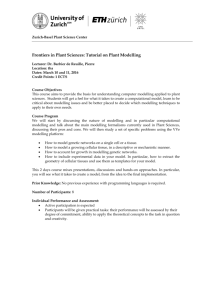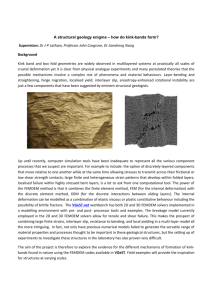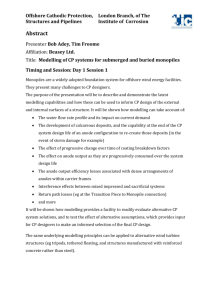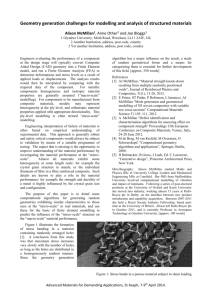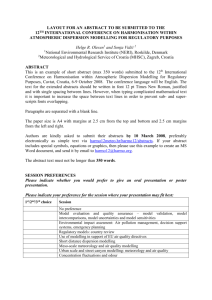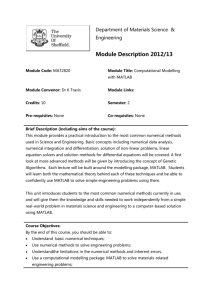new module description
advertisement
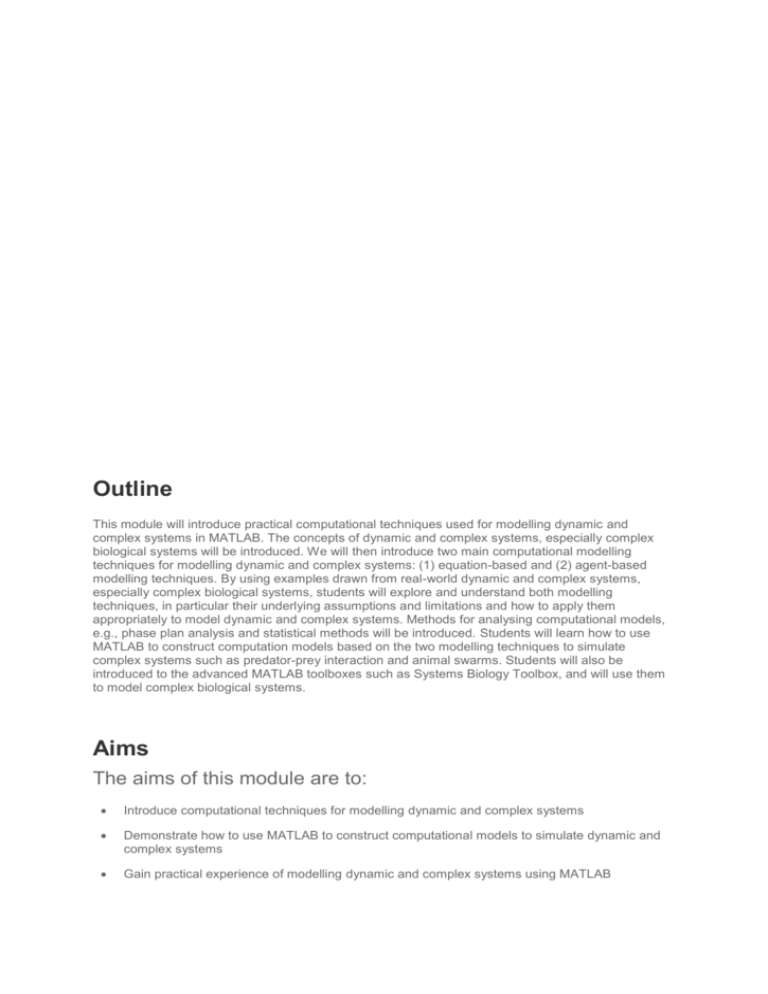
Outline This module will introduce practical computational techniques used for modelling dynamic and complex systems in MATLAB. The concepts of dynamic and complex systems, especially complex biological systems will be introduced. We will then introduce two main computational modelling techniques for modelling dynamic and complex systems: (1) equation-based and (2) agent-based modelling techniques. By using examples drawn from real-world dynamic and complex systems, especially complex biological systems, students will explore and understand both modelling techniques, in particular their underlying assumptions and limitations and how to apply them appropriately to model dynamic and complex systems. Methods for analysing computational models, e.g., phase plan analysis and statistical methods will be introduced. Students will learn how to use MATLAB to construct computation models based on the two modelling techniques to simulate complex systems such as predator-prey interaction and animal swarms. Students will also be introduced to the advanced MATLAB toolboxes such as Systems Biology Toolbox, and will use them to model complex biological systems. Aims The aims of this module are to: Introduce computational techniques for modelling dynamic and complex systems Demonstrate how to use MATLAB to construct computational models to simulate dynamic and complex systems Gain practical experience of modelling dynamic and complex systems using MATLAB Learning Outcomes On successful completion of this module, the student should be able to: Assessed by: 1 Understand the general principle and procedure of computational modelling. Examination 2 Understand equation-based and agent-based modelling techniques. Know their advantages and disadvantages Examination 3 Select an appropriate modelling technique for modelling a dynamic or complex system such as animal swarms. Be able to explain the underlying assumptions and limitations Examination, Continuous Assessment 4 Use methods such as Phase Plane Analysis and statistical techniques to analyse equation-based and agent-based models Examination, Continuous Assessment 5 Implement these models using MATLAB. Be able to use advanced MATLAB programming skills e.g., verctorisation to write efficient code, Examination, Continuous Assessment 6 Apply appropriate MATLAB toolboxes such as Systems Biology Toolbox to model complex systems as appropriate Continuous Assessment Detailed Syllabus 1. Introduction to dynamic systems modelling (2 hours) 2. Brief Introduction to MATLAB programming (2 hours) 3. Equation-based modelling techniques (10 hours) 4. Agent-based modelling techniques (5 hours) 5. Introduction to MATLAB modelling toolboxes (1 hour) 6. Methods for analysing computational models (2 hours)
